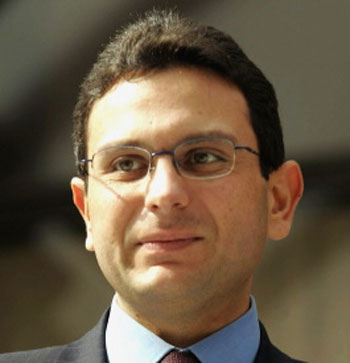Lebanon and its message
By R. Moses Reiss
Lebanon’s elections are scheduled to start on May 29, and will continue for the following three Sundays.
Lebanon is estimated to be 95% Arab. In the last election, in 2000, 50% of the electorate voted for Christian parties. How much of the population is Muslim and how much is Christian is unknown. Estimates range from slightly more Christians than Muslims, to 2-1 favoring Muslims. The 450,000 Palestinians in Lebanon are not counted as they have no rights and are forbidden to hold citizenship. The last census was taken in 1932.
Lebanese are believed to originate from the ancient Phoenicians. King Solomon, in building the Jewish Temple in Jerusalem approximately 3,000 years ago, purchased timber from Lebanon, according to the Bible (1 Kings 5:30-31).
Later came the Armenians, who spoke Aramaic, the language of Jesus. The Armenians claim to be the first Gentile group to convert as a result of Constantine’s conversion in the fourth century; they are still called the Malkites. The word is Semitic and its Hebrew root is the word for king. The Hebrew name for Lebanon is Laban, which also means “white”. Laban was Jacob’s father-in-law for both of his wives (Leah and Rachel), and he is at times called the Armenian.
 filled with celebrations and concerts, offered by him and others from the music industry. The singer called on Arabs throughout the region to overlook the recent tragedies that Lebanon has faced, and to have faith in the country that has been one of the most desirable tourist destinations for years.
filled with celebrations and concerts, offered by him and others from the music industry. The singer called on Arabs throughout the region to overlook the recent tragedies that Lebanon has faced, and to have faith in the country that has been one of the most desirable tourist destinations for years. It was a coincidence, but doubtless one many would find illuminating, that Walid Jumblatt was recently reading (and may still be) Rebecca West’s “The New Meaning of Treason.” For the prevalent view among many Christian voters today is that the Druze leader is a compulsive turncoat. A title he is far less likely to be caught with, however, is “Great Expectations.”
It was a coincidence, but doubtless one many would find illuminating, that Walid Jumblatt was recently reading (and may still be) Rebecca West’s “The New Meaning of Treason.” For the prevalent view among many Christian voters today is that the Druze leader is a compulsive turncoat. A title he is far less likely to be caught with, however, is “Great Expectations.” participate in the upcoming parliamentary elections to reform Lebanon and help it realize its sovereignty, freedom and independence.
participate in the upcoming parliamentary elections to reform Lebanon and help it realize its sovereignty, freedom and independence. BEIRUT, Lebanon – In a sign of the dramatic changes in a Lebanon free of Syrian control, Christian opposition leader Michel Aoun visited his former arch foe in jail Wednesday and called for his release after 11 years in prison, mostly in solitary confinement in an underground cell.
BEIRUT, Lebanon – In a sign of the dramatic changes in a Lebanon free of Syrian control, Christian opposition leader Michel Aoun visited his former arch foe in jail Wednesday and called for his release after 11 years in prison, mostly in solitary confinement in an underground cell. May 18, 2005
May 18, 2005  Art students paint on fabric covering a 5-meter-high wall of sandbags, surrounding the United Nations offices in Beirut, Lebanon, Wednesday, May 18, 2005. The sense of security built up over years of Lebanon’s postwar calm was shattered when a series of bomb blasts hit the capital over the past three months. A U.N. mission is scheduled to arrive in Beirut later this week to conduct an inquiry on the bomb blast that killed former Lebanese Prime Minister Rafik Hariri. (AP Photo / Hussein Malla)
Art students paint on fabric covering a 5-meter-high wall of sandbags, surrounding the United Nations offices in Beirut, Lebanon, Wednesday, May 18, 2005. The sense of security built up over years of Lebanon’s postwar calm was shattered when a series of bomb blasts hit the capital over the past three months. A U.N. mission is scheduled to arrive in Beirut later this week to conduct an inquiry on the bomb blast that killed former Lebanese Prime Minister Rafik Hariri. (AP Photo / Hussein Malla)



